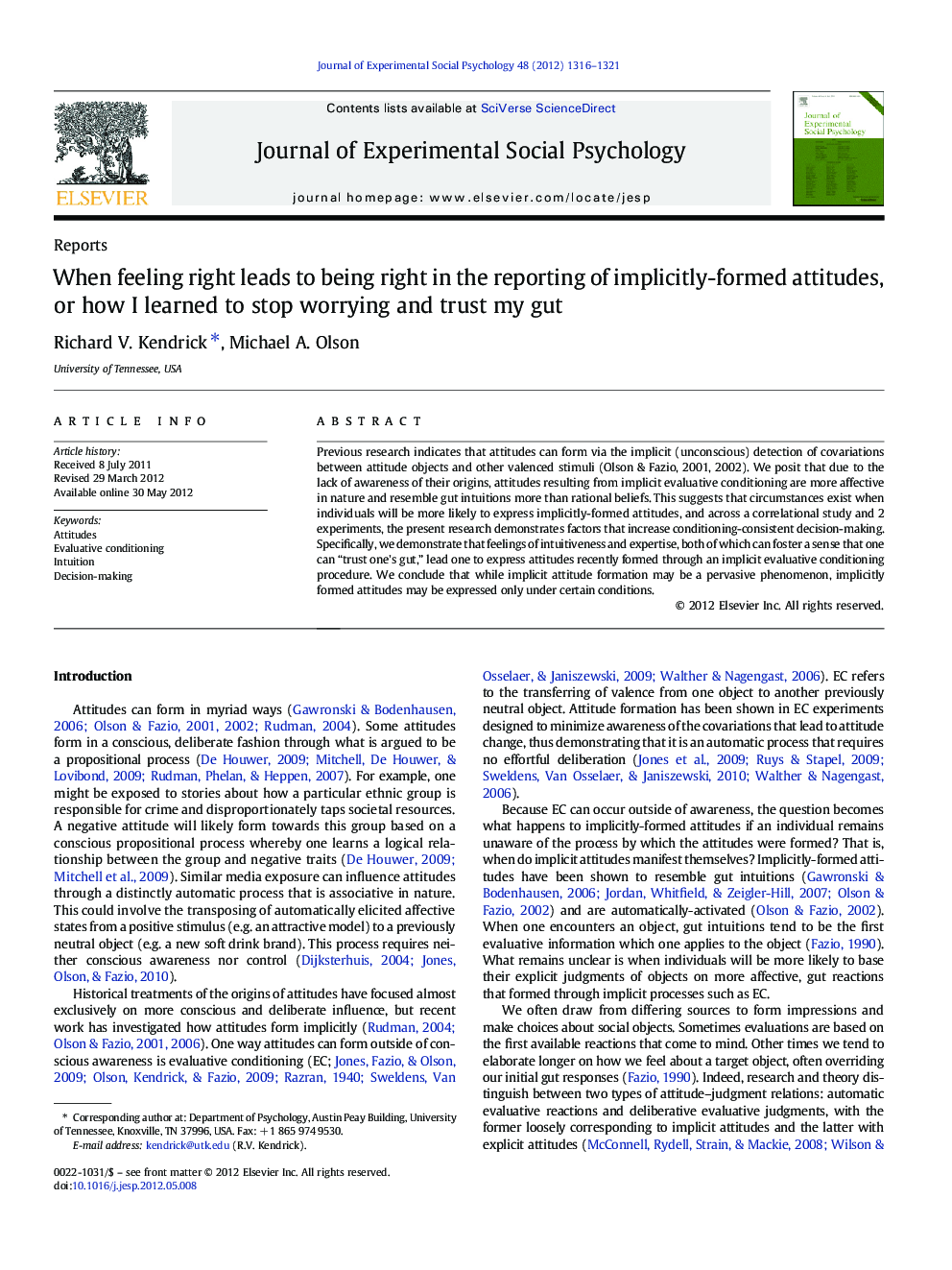| Article ID | Journal | Published Year | Pages | File Type |
|---|---|---|---|---|
| 948079 | Journal of Experimental Social Psychology | 2012 | 6 Pages |
Previous research indicates that attitudes can form via the implicit (unconscious) detection of covariations between attitude objects and other valenced stimuli (Olson & Fazio, 2001, 2002). We posit that due to the lack of awareness of their origins, attitudes resulting from implicit evaluative conditioning are more affective in nature and resemble gut intuitions more than rational beliefs. This suggests that circumstances exist when individuals will be more likely to express implicitly-formed attitudes, and across a correlational study and 2 experiments, the present research demonstrates factors that increase conditioning-consistent decision-making. Specifically, we demonstrate that feelings of intuitiveness and expertise, both of which can foster a sense that one can “trust one's gut,” lead one to express attitudes recently formed through an implicit evaluative conditioning procedure. We conclude that while implicit attitude formation may be a pervasive phenomenon, implicitly formed attitudes may be expressed only under certain conditions.
► Evaluatively-conditioned (EC) attitudes influence object-relevant behavior. ► These attitudes guide judgments when individuals feel that they can trust their gut. ► Feelings of intuitiveness and expertise result in EC-consistent judgments.
